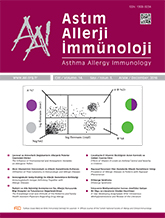


Although glucocorticoids are also known as anti-allergic drugs, rare allergic side effects of glucocorticoids have been reported in the literature. These reactions vary from simple rash to anaphylaxis. Here, a patient who developed anaphylaxis several minutes after intravenous methylprednisolone administration is described. With this report, we want clinicians to be aware of rare side effects including anaphylaxis due to methylprednisolone, known as an anti-allergic drug. An 11-year-old female presented to an outside emergency clinic with ataxia, headache, blurred eyesight and being unable to sit without help for the last week. There was an upper respiratory tract infection within two weeks in her medical history. She seemed well and systemic examination revealed normal findings. Neurological exam showed ataxic gait with positive Romberg and Babinski signs. Eye examination revealed bilateral papillary edema. Laboratory investigations revealed normal CBC, ESR, CRP and routine biochemistry values. Cranial MR suggested pseudotumor cerebri and intravenous methylprednisolone pulse therapy was initiated at the pediatric ward. Several minutes later, a maculopapular rash appeared on her neck and trunk followed by nausea, tachypnea, dsypnea and tachycardia. Consequently, a type 1 hypersensitivity reaction was suspected so the infusion was stopped temporarily and an antihistaminic administered by the pediatrician. The symptoms were resolved but they reappeared when the infusion was restarted mistakenly. An anaphylactic reaction to methylprednisolone was considered and dexamethasone pulse was advised by the allergy unit instead of methylprednisolone. Previous tolerance to the oral form of methylprednisolone by the patient verified the presumption that the reaction was against an excipient. This case indicates that there may even be an allergic reaction to anti-allergic medications.